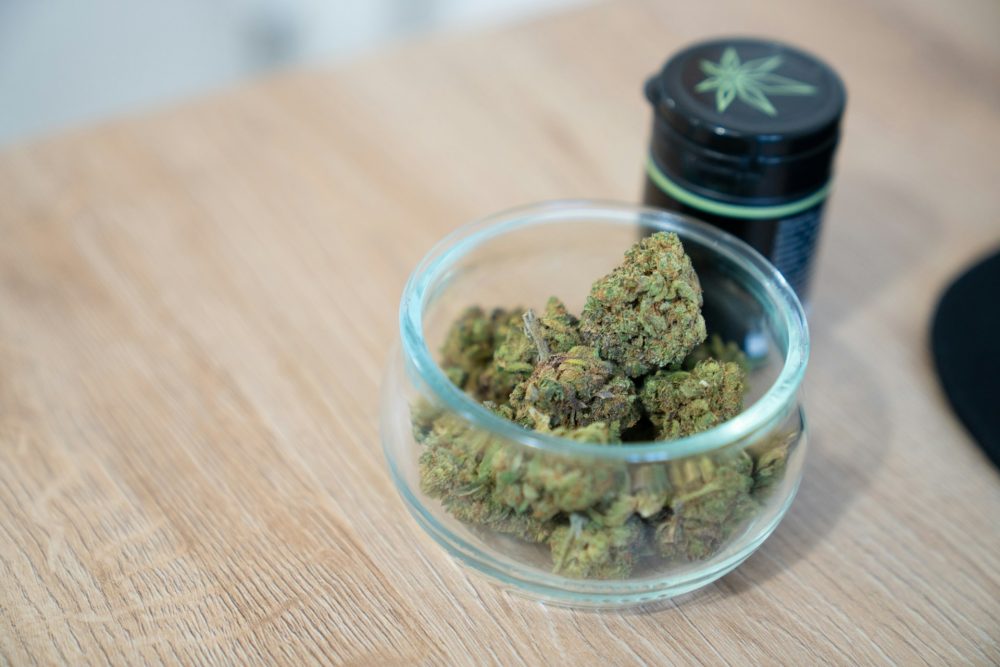Crowdfunding
Tomorrow Launches Third Crowdfunding Round – but Struggles with Growth Issues
The smartphone bank is lagging far behind its own announcements. Tomorrow currently has around 115,000 customers, a growth of around 25,000 over the course of the year. And even the widely announced expansion plans will not happen, at least not in the short term. According to the company, European expansion is no longer planned for this year.

“The sustainable alternative to the bank”: this is the slogan used by Hamburg-based fintech company Tomorrow to advertise on its website. The smartphone bank wants to combine intelligent banking via an app and sustainable investments.
Investors seem convinced by the business model. While many fintech companies are having problems raising fresh capital from investors in the current market environment, Tomorrow has managed to do so.
In mid-October, the company closed a new financing round, said co-founder Michael Schweikart in an interview with Handelsblatt. In total, Tomorrow raised a mid-single-digit million amount from investors – and increased its valuation by almost 29 percent to 90 million euros, according to the company.
Tomorrow, founded by Inas Nureldin, Jakob Berndt, and Schweikart, launched its banking app in the spring of 2019. The company now has 120 employees. However, the fintech does not have its own banking license itself, but works together with Berlin-based Solarisbank. Earlier this month, the company launched its first own equity fund.
If you want to read more about Tomorrow and to find the latest financial news of the day, download for free our companion app Born2Invest.
The financing round could be joined by further money in a few weeks – a maximum of eight million euros
Because Tomorrow is launching its third crowdinvesting round – and is enticing investors with returns of five percent on the deposit after five years.
Crowdinvestments are a popular means of external financing, especially for start-ups. Investors can participate in the future success of a company, and the company itself receives additional capital in return.
However, an investment also carries risks, which Tomorrow also warns against: “The acquisition of the security can lead to the complete loss of the invested assets,” says a press release from the fintech company, for example.
In the previous two crowdinvesting rounds, the fintech company had collected a total of eleven million euros from about 8000 crowdinvestors. Co-founder Jakob Berndt expects “great interest” from potential investors this time as well. Thus, interested parties also have only 48 hours in mid-November to place their offer. The sum that can be invested is between 100 and 25,000 euro.
Tomorrow has revised its own targets several times
While investors are obviously convinced of the growth story, the concept does not seem to have fully caught on with potential customers yet. Tomorrow has had to revise its own growth targets several times in the past. At one point, there was talk of a target of one million customers, and then at least of doubling the number of customers over the course of the year.
However, the smartphone bank is lagging far behind its own announcements. Tomorrow currently has around 115,000 customers, a growth of around 25,000 over the course of the year. And even the widely announced expansion plans will not happen, at least not in the short term. According to the company, European expansion is no longer planned for this year.
“We’ve had to revise our earlier goals,” says co-founder Berndt – and also “take forks in the road” in some places. The point, he says, is to grow healthily – not at any price.
But even if you leave out big smartphone banks like Revolut (over 20 million private customers) or N26 (over eight million): GLS Bank in Bochum, which is also ecologically oriented, has 278,000 customers – and offers a significantly larger product range.
Tomorrow is not yet profitable
The company is not yet profitable, but the founders say they are aiming for this in the next two to three years. The paid account should also help. This year, Tomorrow abolished the free account for both new and existing customers – and now charges a monthly fee of at least three euros.
The fintech company has also been able to dispel two points of criticism in recent months. For one, the share of green investments is now as high as announced. “We reached our goal of 30 percent in sustainable investments at the beginning of the year,” said Berndt. Previously, Tomorrow had only invested a fraction of customer deposits in sustainable investments.
And secondly, they were able to reach an out-of-court settlement with the Baden-Württemberg consumer center. The Hamburg-based company advertised that its “Zero” checking account was the first climate-neutral checking account. In the process, the account holder was also supposed to receive compensation for his or her own carbon footprint. Because over the account fee CO2 certificates were to be financed. This found the consumer center Baden-Württemberg as “misleading advertising” and warned the smartphone bank.
“For interested consumers, it would of course be a gain if they could reduce ‘their carbon footprint,'” criticized Niels Nauhauser of the Baden-Württemberg consumer center last year. “But how is a company supposed to know this and then be able to compensate exactly?”
Now Tomorrow is focusing on further growth – but with more moderate goals. “We want to grow at least at the same pace in the future,” said Berndt.
__
(Featured image by iqbalnuril via Pixabay)
DISCLAIMER: This article was written by a third party contributor and does not reflect the opinion of Born2Invest, its management, staff or its associates. Please review our disclaimer for more information.
This article may include forward-looking statements. These forward-looking statements generally are identified by the words “believe,” “project,” “estimate,” “become,” “plan,” “will,” and similar expressions. These forward-looking statements involve known and unknown risks as well as uncertainties, including those discussed in the following cautionary statements and elsewhere in this article and on this site. Although the Company may believe that its expectations are based on reasonable assumptions, the actual results that the Company may achieve may differ materially from any forward-looking statements, which reflect the opinions of the management of the Company only as of the date hereof. Additionally, please make sure to read these important disclosures.
First published in Handelsblatt, a third-party contributor translated and adapted the article from the original. In case of discrepancy, the original will prevail.
Although we made reasonable efforts to provide accurate translations, some parts may be incorrect. Born2Invest assumes no responsibility for errors, omissions or ambiguities in the translations provided on this website. Any person or entity relying on translated content does so at their own risk. Born2Invest is not responsible for losses caused by such reliance on the accuracy or reliability of translated information. If you wish to report an error or inaccuracy in the translation, we encourage you to contact us.

-

 Africa3 days ago
Africa3 days agoSurging Expenditures Widen Morocco’s Budget Deficit Despite Revenue Growth
-

 Markets2 weeks ago
Markets2 weeks agoSoybean Market Reacts to Trade Hopes, High Stocks, and Global Price Pressure
-

 Cannabis11 hours ago
Cannabis11 hours agoGermany Moves to Curb Medical Cannabis Abuse, Sparking Access Concerns
-

 Cannabis1 week ago
Cannabis1 week agoSwitzerland Advances Cannabis Legalization with Public Health Focus
























